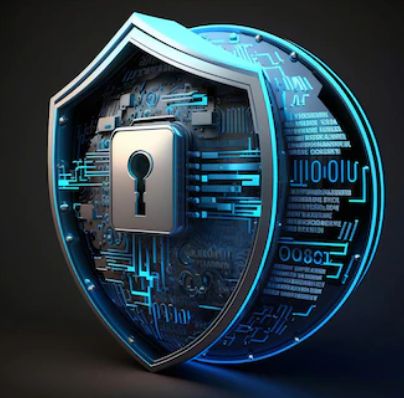In this digital era, safeguarding sensitive information has become a vital part of both our personal and corporate lives. Moreover, the advancement of technology in Nigeria comes with several threats of cyber crimes. Here’s where the need for information security arises.
Understanding and prioritizing information security is the first step to protecting valuable data and saving oneself the risk of exposing confidential details. In this guide, we will explore what information security is all about, as well as how to use it for personal and organizational benefits.
Table of Contents
What is Information Security?
Information security or Infosec is the practice of protecting information and information systems such as databases, laptops, networks, and smartphones.
Additionally, information security safeguards information from unauthorized access, use, inspection, recording, disclosure, disruption, modification, or destruction. It does this by ensuring the safety and privacy of critical data like customer account details, intellectual properties or financial data.
It comprises a wide range of measures designed and put in place to ensure the confidentiality, integrity, and availability of information. Information security also mitigates risks and shields data from cyber threats, such as hacking, data breaches, phishing, and other malicious activities.
Tenets of Information Security
The tenets or principles of information security serve as the groundwork for effective protection of information. There are six main principles of infosec which comprise the CIA triad, the AAA cybersecurity, and non-repudiation.
Let’s take a look at these principles:
- Confidentiality: This entails ensuring that information is accessible only to authorized individuals.
- Integrity: This involves maintaining the accuracy, consistency, and trustworthiness of information.
- Availability: This involves guaranteeing that information is accessible to authorized users only whenever needed. The CIA triad signifies three key principles of data security.
- Authentication: This has to do with verifying the identity of individuals and entities accessing the information.
- Authorization: This entails granting appropriate access rights and permissions to authorized users.
- Accountability: This is all about holding individuals responsible for their actions within an information system.
- Non-repudiation: This means preventing individuals from denying their actions or transactions.
Information Security in Comparison to Cybersecurity: A Quick View
Information security and cybersecurity are two complementary but distinct disciplines. While information security addresses the protection of all types of data, cybersecurity focuses specifically on safeguarding digital systems and networks from cyber threats.

Information security.
Both domains are crucial in today’s interconnected landscape. With information security serving as the broader framework and cybersecurity specializing in defending against digital risks.
However, understanding the differences and interconnection between these two fields is vital for organizations and individuals. This is to ensure effective protection of their digital assets, maintain privacy, and mitigate the ever-evolving cyber threats that surround us.
9 Types of Information Security
Information security comprises different categories which include:
-
Cybersecurity
Cybersecurity is the protection of computer systems, networks, software, and data from unauthorized access, damage, theft, destruction, disruption, or any other online attack. You might want to learn more about how to improve cybersecurity.
-
Network security
This means protecting the network framework and communication channels from unauthorized access, data interception, or disruptions.
-
Application security
Application security has to do with ensuring the security of software applications and preventing vulnerabilities that could be exploited.
-
Data security
It entails safeguarding data integrity, confidentiality, and availability through encryption, access controls, and backup measures.
-
Physical security
It involves protecting physical assets such as servers, data centres, and devices from unauthorized access or theft.
-
Endpoint security
This has to do with securing endpoints such as laptops, smartphones, and IoT devices to prevent unauthorized access or data breaches.
-
Cloud security
The focus here is implementing security measures to protect data stored in cloud environments as well as to ensure compliance.
-
Social engineering
This involves educating individuals to recognize and prevent manipulation techniques used to gain unauthorized access to information.
Information Security Policies
Information security policies are set rules that people are expected to observe when using IT resources or assets. The aim is to protect information assets from security threats.
These policies explain and communicate expectations, responsibilities, and best practices for employees and users. Now, let’s look at some key elements of information security policies.
- Access Control: This defines rules for granting, modifying, and revoking access rights to information systems.
- Password Management: This establishes guidelines for creating strong passwords, regular password changes, and safeguarding password information.
- Incident Response: This outlines procedures to be followed in case of security incidents, including reporting and mitigation.
- Data Classification: This categorizes data based on its sensitivity and defines appropriate security measures for each classification level.
- Acceptable Use: This defines acceptable and unacceptable behaviour when using company resources and accessing sensitive information.
Creating, and updating information security policies should be determined by important company changes or newly discovered threats. Ensuring compliance with these changes will make your policies effective.
Moreover, ensure your information security policies’ strategy is relatable and practical enough to meet the needs of your organization.
12 Common Information Security Threats in Nigeria
There are different kinds of threat angles you can expose your organization’s confidential information if you are ignorant. Some common threat angles include:
-
Phishing and pharming attacks
These are the most prevalent information security threats in Nigeria. Just as in many parts of the world, cybercriminals use various techniques to infiltrate a company’s information. They use deceptive emails, text messages, or phone calls to trick individuals into revealing sensitive information like login credentials, banking details, or personal data.
By impersonating reputable organizations or individuals, these attackers exploit human vulnerabilities. Owing to this, they pose a significant risk to both individuals and organizations in Nigeria.
-
Malware infections
The proliferation of malware, including viruses, worms, ransomware, and spyware, pose a significant threat to Nigeria’s information security landscape.
Cybercriminals now leverage social engineering tactics and unpatched software vulnerabilities to infect systems and networks, causing financial losses, data breaches, and operational disruptions. The rise of mobile malware targeting smartphones and tablets adds a layer of concern in Nigeria, where mobile device adoption is rapidly growing.
-
Insider threats
While external threats are often in the spotlight, insider threats can be equally damaging. In Nigeria, organizations must remain vigilant against malicious activities carried out by employees, contractors, or trusted partners who have authorized access to sensitive data and systems.
These threats can manifest as deliberate data breaches, unauthorized access, or accidental information leaks. Thus, companies/individuals need more robust access controls, employee awareness programs, and effective incident response strategies to mitigate cybercrime.
-
Weak authentication and password practices
Weak password and authentication practices are prevalent in Nigeria. This encourages unauthorized access to personal accounts, financial systems, and critical infrastructure.
The reuse of passwords across multiple accounts, weak password complexity, and the absence of multi-factor authentication increases the likelihood of successful brute-force attacks or credential stuffing. Educating individuals and promoting the use of strong, unique passwords alongside multi-factor authentication is crucial in mitigating this threat.
-
Social engineering
Social engineering techniques, such as pretexting, baiting, or tailgating, remain a strong threat in Nigeria. Attackers exploit human psychology and trust to manipulate individuals into revealing confidential information or granting unauthorized access.
Phishing attacks often incorporate social engineering tactics, making them even more effective. Raising awareness about social engineering techniques, encouraging scepticism, and promoting a culture of security consciousness are vital countermeasures.
-
Advanced persistent threats (APTs)
Nigeria, being an emerging market with growing economic significance, has become a target for sophisticated cyber-spying campaigns conducted by APT groups. These well-resourced attackers, often sponsored by nation-states, focus on stealing sensitive government, military, or corporate information.
APTs pose a significant challenge as they employ advanced techniques, including zero-day exploits and custom malware, making them difficult to detect and defend against.
-
Data breaches
Data breaches have become increasingly common in Nigeria, exposing individuals’ personal information and businesses’ confidential data. Weak information security practices, inadequate network monitoring, and improper data handling contribute to these breaches.
Organizations need to invest in robust data protection measures, including encryption, access controls, and regular security audits. This will help to prevent unauthorized access and protect sensitive information.
-
Internet of things (IoT) vulnerabilities
The rapid adoption of IoT devices in Nigeria introduces new security challenges. Many IoT devices lack proper security mechanisms, making them vulnerable to exploitation.
Insecure default configurations, outdated firmware, and weak authentication mechanisms make IoT devices attractive targets for cybercriminals. Addressing IoT vulnerabilities requires implementing strong security controls, regular patching, and segmenting IoT networks from critical systems.
-
Supply chain attacks
Supply chain attacks have gained prominence globally and pose a significant threat to Nigeria’s information security landscape. Cybercriminals target suppliers and service providers to gain unauthorized access to their customers’ networks or compromise the integrity of the products or services provided.
Ensuring a secure supply chain requires due diligence in vetting third-party vendors, conducting regular security assessments, and implementing strict security controls throughout the procurement process.
-
Lack of cybersecurity awareness and education
A critical factor contributing to the success of information security threats in Nigeria is the lack of cybersecurity awareness and education among individuals and organizations. Ignorance of safe online practices, such as recognizing phishing attempts, updating software, or implementing strong passwords, leaves people more susceptible to cyber threats.
Promoting cybersecurity education initiatives, training programs, and public awareness campaigns can empower Nigerians to protect themselves and their digital assets. Read more on the career opportunities for you in cybersecurity.
-
Poorly secured or unsecured systems
Technology develops at the speed of light. At that rate, it’s easy to overlook or even play down certain measures that are put in place to mitigate security threats. On the other hand, designing systems without considering matters of security and using them for a long time as outdated systems is a reckless practice.
Organizations should always look out for poorly protected systems and find a way to make them secure. They can get rid of them, fix them, or even separate them from other systems
-
Social media threats
People ignorantly give out so much information about themselves on social media that could be used against them. Hackers can launch attacks directly through social media. A good example is the case of phishing and spreading malware via social media messages.
Attackers can also spread malware indirectly, using the information obtained from these sites to analyze user and organizational vulnerabilities. They can redesign the information obtained and use it to launch attacks against them.
Effective Steps to Information Security Analysis
Organizations and individuals should follow these steps to secure their information against attackers:
- Identify Assets: Obtain valuable information about assets within the organization.
- Assess Threats and Vulnerabilities: Identify potential threats and vulnerabilities that could compromise the security of those assets.
- Evaluate Risks: Assess the likelihood and impact of potential risks to prioritize mitigation efforts.
- Implement Controls: Deploy appropriate security measures and controls to minimize risks.
- Monitor and Review: Continuously monitor and review the effectiveness of implemented controls and update them as needed.
Why You Need Information Security
You might be wondering if information security is indeed important as we paint it in this article. Below are the individual/organizational benefits of infosec. Soon, you’ll realize why you need to take it very seriously.
- Protection of Financial and Personal Data: Information security measures aid in preventing identity theft, financial fraud, and unauthorized access to sensitive data.
- Safeguarding Business Assets: Infosec helps to protect organizational valuable assets, such as intellectual property and trade secrets. It also protects customer databases from theft, espionage, or unauthorized disclosure, preserving competitive advantage and business continuity.
- Compliance with Regulations: Information security encourages regulations and industry standards with robust information security measures. These help Nigerian businesses to operate well and avoid legal penalties. It also helps to build trust among customers and business partners.
- Prevention of Data Breaches: Data breaches can have severe financial and reputational consequences. Adequate information security measures will help to reduce the risk of data breaches, thereby ensuring the confidentiality and integrity of sensitive information.
- Reduction of Operational Interruptions: Cyberattacks can interrupt business activities and operations, which is likely to lead to financial losses and reputational damage. However, by protecting information systems, organizations can reduce the potential impact of such disruptions, thereby ensuring smooth operations and customer trust.
- Protection against Cyber Attacks: Information security practices helps to defend against hacking attempts, malware infections, phishing attacks, and other cyber threats. This reduces vulnerabilities and increases resilience.
- Preservation of Customer Trust: Customer trust is crucial for business success. Demonstrating commitment to information security instils confidence in customers, leading to long-term relationships and a positive brand reputation.
- Enhancing Competitive Advantage: Infosec can serve as a differentiating factor in today’s interconnected world. Organizations that prioritize information security can attract customers and partners who value the protection of their sensitive data.
- Protection of National Security: Information security is not limited to individual businesses. It also plays a vital role in safeguarding national security interests. By securing critical infrastructure, government systems, and sensitive data, Nigeria can protect itself from cyber threats and maintain its sovereignty.
Are you ready to be intentional with your writing career? Join our WhatsApp community for more insights.
Conclusion
Whether it’s protecting personal data, securing business assets, complying with regulations, or mitigating cyber threats, implementing infosec measures should be an integral part of both individuals’ and enterprises’ activities. With a good understanding of information security, individuals/organizations can safeguard their valuable data. Prioritizing information security is not just a necessity. It is a strategic investment in the future of Nigerian businesses and individuals.
Do you love our technology insights and you won’t mind having more content dropped into your inbox? Subscribe to our newsletter today and let’s keep you updated.
About Author
- Ruth Faithful is an educationist and a highly skilled freelance writer with a knack for crafting top-notch engaging and compelling on-brand copies and content that connects with readers and delivers results for businesses and brands. She is a passionate advocate for personal development and self-actualization. She is dedicated to helping individuals and businesses thrive.
Latest entries
 Business InsightsJuly 6, 20239 Best Social Media Platforms to Promote Your Brand
Business InsightsJuly 6, 20239 Best Social Media Platforms to Promote Your Brand EntrepreneurJune 25, 2023Digital Marketing Vs Traditional Marketing in Nigeria: Which is More Effective?
EntrepreneurJune 25, 2023Digital Marketing Vs Traditional Marketing in Nigeria: Which is More Effective? Business InsightsJune 13, 2023How to Create Successful Campaigns with the Facebook Ad Library
Business InsightsJune 13, 2023How to Create Successful Campaigns with the Facebook Ad Library Business InsightsMay 27, 2023How to Build Generational Wealth Through a Successful Family Business
Business InsightsMay 27, 2023How to Build Generational Wealth Through a Successful Family Business

